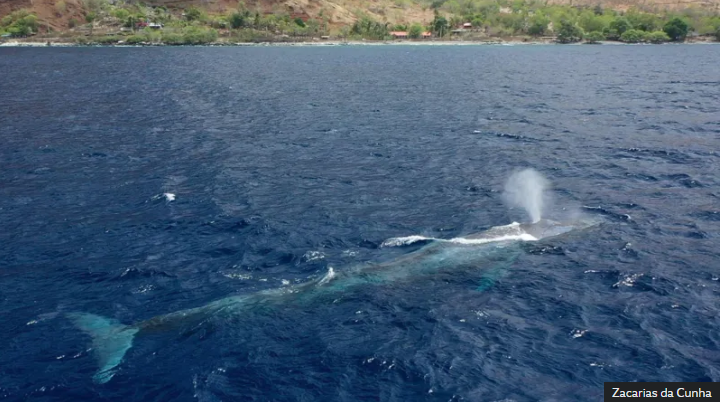The citizen researchers, all of them locals, have spotted nearly 3,000 pygmy blue whales over the past 10 years

Timor-Leste’s Citizen Scientists: Guardians of Pygmy Blue Whales
For two months each year, Faustino Mauloko da Cunha transforms his coastal home in Subaun, a small village in northern Timor-Leste, into a hub of whale research. From sunrise, locals and student volunteers gather with binoculars and cameras to monitor the majestic pygmy blue whales migrating through the cobalt waters of the South Pacific.
When a whale is spotted, the team springs into action. Faustino’s son, Zacarias, launches a drone under the guidance of Australian marine ecologist Professor Karen Edyvane, capturing invaluable footage. The images are analyzed on-site, with notes meticulously recorded on whiteboards.
This modest setup has become a cornerstone for studying pygmy blue whales—elusive giants whose behaviors remain largely a mystery. Over the past decade, these citizen scientists have recorded nearly 3,000 sightings, a figure Prof. Edyvane calls “extraordinary.”
A Whale Migration Hotspot
Timor-Leste, part of a biodiverse archipelago, sees hundreds of pygmy blue whales during migration season in October and November. These whales undertake a journey spanning thousands of kilometers from the Banda Sea to southern Australia. Despite this, the region was under-researched until Prof. Edyvane initiated the citizen science program in 2014.
Working with locals, she has uncovered rare insights into the species’ reproductive behaviors, such as a mother nursing her calf—a first for the scientific community.
From Facebook to Research Stations
The program began as a Facebook group where fishermen and residents shared whale sightings. With training, locals have become proficient in using drones and cameras for surveys. In 2022, the da Cunha family’s home was equipped with basic facilities, enabling round-the-clock monitoring.
“We’ve captured incredible footage. The whales come so close you can hear their blows,” Prof. Edyvane shares.
This grassroots initiative has also boosted eco-tourism. Whale-watching tours, launched in collaboration with dive operators, are now fully booked years in advance. The rise in tourism is a lifeline for local families, many of whom subsist on less than $1,000 annually.
Protecting Timor-Leste’s Marine Treasures
With increased whale tourism comes the risk of unregulated practices. Prof. Edyvane emphasizes the importance of sustainable tourism to protect the marine ecosystem. Her research is guiding the government in conservation efforts, promising both economic growth and environmental preservation.
The da Cunha family is at the heart of these efforts. Faustino now offers meals made from local produce to visiting students and tourists, while Zacarias provides drone services and educates visitors about marine life.
“This project is teaching us to protect our area,” Zacarias says, adding that tourists leave with a greater appreciation for conservation.
As Timor-Leste’s citizen scientists continue their work, they’re proving that grassroots efforts can yield global insights—one whale at a time.
















